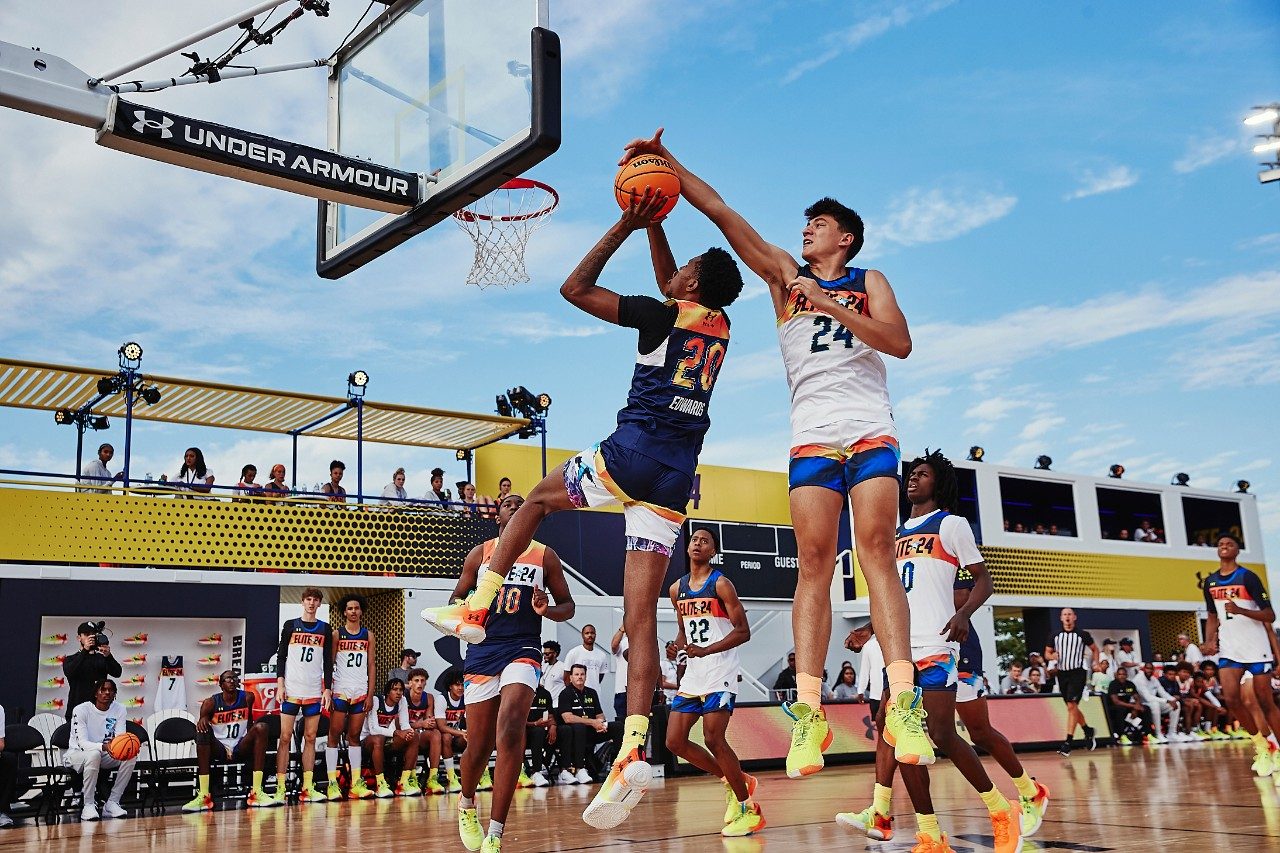Sports Nutrition: How Proper Nutrition Can Improve Athletic Performance
When it comes to sports performance, many people focus solely on their training and exercise routines. While this is important, it’s also crucial to pay attention to what you’re putting into your body. Proper nutrition is essential for athletic performance, and can make a significant difference in how well you perform and recover.
In this article, we’ll take a closer look at sports nutrition and how it can help improve your athletic performance. Learn food basics: what, when, and how to eat for optimal nutrition and best results.
What is Sports Nutrition?
Sports nutrition is the study of how nutrition and diet can impact athletic performance. It involves understanding the specific nutrient needs of athletes, and how to properly fuel the body before, during, and after physical activity.
While everyone needs proper nutrition to stay healthy, athletes have unique nutritional needs due to the demands of their sport. They require more energy, protein, and other nutrients to fuel their bodies during intense training and competition.
Sports nutrition is a critical component of athletic performance. Proper nutrition provides the fuel that an athlete’s body needs to perform at its best, and can also help to reduce the risk of injury and illness. In this blog post, we will explore the ways in which proper nutrition can improve athletic performance, and provide some tips on how to optimize your diet for peak performance.
- Provides the Energy Needed for Exercise: The food that we eat is converted into energy through a process known as metabolism. Metabolism produces energy that powers all of the body’s functions, including exercise. Without adequate energy intake, an athlete’s body will not have the fuel that it needs to perform at its best. Carbohydrates, in particular, are an important source of energy for high-intensity exercise.
- Supports Muscle Growth and Repair: Adequate protein intake is essential for athletes to support muscle growth and repair. Protein is needed to repair the damage that is caused to muscle tissue during exercise, and to build new muscle tissue. Inadequate protein intake slows muscle recovery, lowering performance and raising injury risk for athletes.
- Reduces the Risk of Injury: Proper nutrition can also help to reduce the risk of injury. Adequate intake of vitamins and minerals, such as calcium, magnesium, and vitamin D, is important for strong bones, which can help to prevent fractures and other injuries. Proper hydration is also critical for preventing injuries such as heat exhaustion and heat stroke.
- Enhances Recovery Time: After exercise, it is important to consume a meal or snack that contains both carbohydrates and protein. This is because carbohydrates help to replenish the glycogen stores that are depleted during exercise, while protein is needed for muscle repair and growth. Eating proper nutrients after exercise can accelerate recovery time, helping athletes perform at their best sooner.
- Improves Mental Focus: Proper nutrition can also improve mental focus, which is critical for athletic performance. Foods that are high in antioxidants, such as berries and leafy greens, can help to reduce inflammation in the body, which can improve mental clarity and focus. Research has shown that omega-3 fatty acids, present in fatty fish and nuts, improve cognitive function.
The Basics of Sports Nutrition
To understand sports nutrition, it’s important to understand the basics of nutrition in general. There are several main macronutrients that make up our diet:
Carbohydrates: Carbs are the primary source of energy for the body, and are essential for athletic performance. They provide energy for the muscles and brain, and can be found in foods like bread, pasta, rice, fruits, and vegetables.
Protein: Protein is essential for building and repairing muscles, and is crucial for athletes who are putting extra strain on their bodies. Good sources of protein include meat, poultry, fish, beans, and dairy products.
Fat: While fat is often demonized in the media, it’s actually an important part of a healthy diet. It provides energy, helps regulate hormones, and is necessary for the absorption of certain vitamins. Good sources of healthy fats include nuts, seeds, avocados, and fatty fish.
Micronutrients: Micronutrients are the nutrients that our bodies require in smaller amounts, but are still essential for overall health and athletic performance. These include vitamins, minerals, and antioxidants.
Vitamins: Vitamins play a critical role in energy production, immune function, and muscle repair. Athletes should aim to consume a variety of fruits and vegetables, which are rich in vitamins such as vitamin C, vitamin A, and vitamin K.
Minerals: Minerals are important for strong bones, healthy blood, and nerve function. Athletes should focus on consuming foods that are rich in calcium, magnesium, and iron, as these minerals are particularly important for athletic performance.
Antioxidants: Antioxidants help to protect the body from the damaging effects of free radicals, which are produced during exercise. Foods that are high in antioxidants include berries, leafy greens, and nuts.
Hydration: Proper hydration is critical for athletic performance, as even mild dehydration can impair physical and cognitive function. Athletes should aim to consume at least 8-10 cups of water per day, and more if they are exercising in hot and humid conditions. For longer workouts, it’s vital to consume electrolyte-containing fluids like sports drinks or coconut water.
Supplements:
While it is always best to get nutrients from whole foods, some athletes may benefit from supplements to help support their athletic performance. Common supplements include:
- Protein powders: Protein powders can be a convenient way to increase protein intake, particularly for athletes who are vegetarian or vegan. Dairy-consuming athletes opt for whey, while vegan athletes choose plant-based powders like soy or pea protein.
- Creatine: Creatine is a naturally occurring compound that is found in meat and fish, and can also be taken as a supplement. Beta-alanine enhances energy production, improving performance during weightlifting, sprinting, and other high-intensity activities.
- Beta-alanine: Beta-alanine is an amino acid that is believed to improve muscle endurance and delay fatigue during high-intensity exercise. It works by increasing the levels of carnosine in the muscles, which helps to buffer lactic acid and delay the onset of muscle fatigue.
The Importance of Post-Workout Nutrition:
After exercise, the body is in a state of recovery, and the muscles are primed to take up nutrients that can aid in repair and growth. Consuming the right nutrients at the right time can help to maximize this process and support optimal recovery.
Fluids:
During exercise, the body loses fluids through sweat, and it’s important to replenish these fluids after exercise to prevent dehydration. Aim to consume enough fluids to replace the amount lost during exercise. A good rule of thumb is to drink 16-20 ounces of water or sports drink for every pound of body weight lost during exercise.
Electrolytes:
Electrolytes are minerals such as sodium, potassium, and magnesium, that play important roles in fluid balance, nerve function, and muscle contraction. During exercise, electrolytes are lost through sweat, and it’s important to replenish them after exercise to support optimal recovery. Sports drinks or electrolyte supplements can be a good way to replenish electrolytes after exercise.
Meal Timing:
Timing is also important when it comes to post-workout nutrition. Consuming protein and carbohydrates within 30 minutes to an hour after exercise can help to maximize the body’s ability to recover and support muscle growth. Sweating during exercise causes a loss of electrolytes, and it’s crucial to replenish them after exercising for optimal recovery.
Food Choices:
While protein and carbohydrates are the most important nutrients to focus on after exercise, it’s also important to choose nutrient-dense foods that provide other important nutrients such as vitamins and minerals. Good post-workout food choices include:
- Greek yogurt with berries and granola
- Grilled chicken with sweet potato and roasted vegetables
- Protein smoothie with banana, spinach, and almond milk
- Tuna salad with whole grain crackers and vegetables
- Quinoa bowl with roasted vegetables and grilled salmon
Fueling Your Body before Exercise:
One of the most important aspects of sports nutrition is properly fueling your body before exercise. This ensures that you have enough energy to power through your workout, and can prevent fatigue and muscle breakdown.
Eat carb-rich meals before exercise as they’re the body’s primary fuel source during workouts. Good options include oatmeal, whole grain bread, fruit, and yogurt.
It’s also important to stay hydrated before a workout, as even mild dehydration can impair performance. Aim to drink at least 16-20 ounces of water or sports drink 2-3 hours before exercise, and another 8-10 ounces 10-20 minutes before starting.
Fueling Your Body during Exercise:
For longer workouts or intense activities, it may be necessary to consume additional fuel during exercise. This can help maintain energy levels and prevent fatigue.
During exercise, aim to consume 30-60 grams of carbohydrates per hour. Good options include sports drinks, gels, or easily digestible snacks like bananas or energy bars.
It’s also important to stay hydrated during exercise. Aim to drink 7-10 ounces of water or sports drink every 10-20 minutes during exercise, especially in hot and humid conditions.
Fueling Your Body after Exercise:
After a workout, it’s important to refuel your body with the nutrients it needs to recover and repair. This helps prevent muscle breakdown and promotes muscle growth, as well as replenishes glycogen stores and fluids lost during exercise. Discover post-workout nutrition’s significance and get tips on how to refuel your body efficiently in this post.
Conclusion:
Post-workout nutrition is critical for optimal recovery and performance. Consuming protein and carbohydrates within 30 minutes to an hour after exercise can help to promote muscle growth, prevent muscle breakdown, and replenish glycogen stores. It’s also important to consume enough fluids and electrolytes to support hydration and optimal recovery. Optimize recovery and performance by choosing nutrient-rich foods and following these post-exercise refueling tips.



